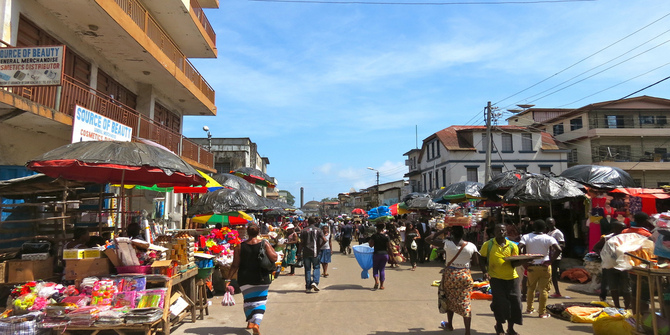A £3000 grant from LSE’s Entrepreneurship program has helped improve the lives of a group of under-nourished Malawian prisoners battling HIV/AIDS, tuberculosis and scabies.
Thanks to the initiative shown by LSE law student Maya Linstrum-Newman, inmates jailed in Chichiri Prison in south east Africa now have basic sustainable farming skills to grow their own food within the prison grounds.
 Maya, a 22-year-old Masters student specialising in Public International Law, founded the Prison Harvests Project while undertaking a human rights internship in Malawi earlier this year.
Maya, a 22-year-old Masters student specialising in Public International Law, founded the Prison Harvests Project while undertaking a human rights internship in Malawi earlier this year.
“My central role was to draft applications for jailed defendants but because I was visiting the prison every day, I became aware of some very serious side issues,” she said.
Overcrowding, a poor diet, limited ventilation and HIV/AIDS have led to high sickness rates and even death in the minimum security Malawian prison.
While some of these factors were outside of her control, Maya said she saw a solution to health problems partly caused by a prison diet consisting solely of maize.
“One of my fellow volunteers in Malawi was working for an environmental organisation which provided training in sustainable land management to schools and churches.
“I saw an opportunity to replicate this training in the prison, which has large amounts of available land perfect for sustainable farming,” Maya said.
After securing £3000 seed funding from LSE, within weeks Maya had signed up nine prisoners and six prison guards for a pilot training session, providing the group with the basic skills necessary to cultivate a sustainable harvest and diverse range of food crops.
The project has since expanded, with 59 prisoners now being trained in sustainable land management, giving them not only lifelong agricultural skills they can use on release, but a vast improvement in their diet.
The benefits have spread further: the families of prisoners no longer have to bear the burden of finding extra food for their jailed relative to supplement the meagre prison diet.
“Not only have we been able to tackle food shortages and provide better nutrition through this project, the self-esteem among prisoners has risen immeasurably,” Maya said. “The very act of growing your own food in a sustainable and self-sufficient way is extremely empowering,” she added.
The success of the venture, which was made possible by LSE’s Entrepreneurial grants scheme, could now lead to the sustainable harvest project being rolled out across every other prison in Malawi.
As founder of the project, Maya will continue to assist her partner organisation, the Wildlife and Environment Society of Malawi, but the ultimate goal is for the scheme to become a policy within the Malawi Prison Service.
Maya is due to complete her Masters of Law in June before taking up a job with the International Committee of the Red Cross in Geneva.



